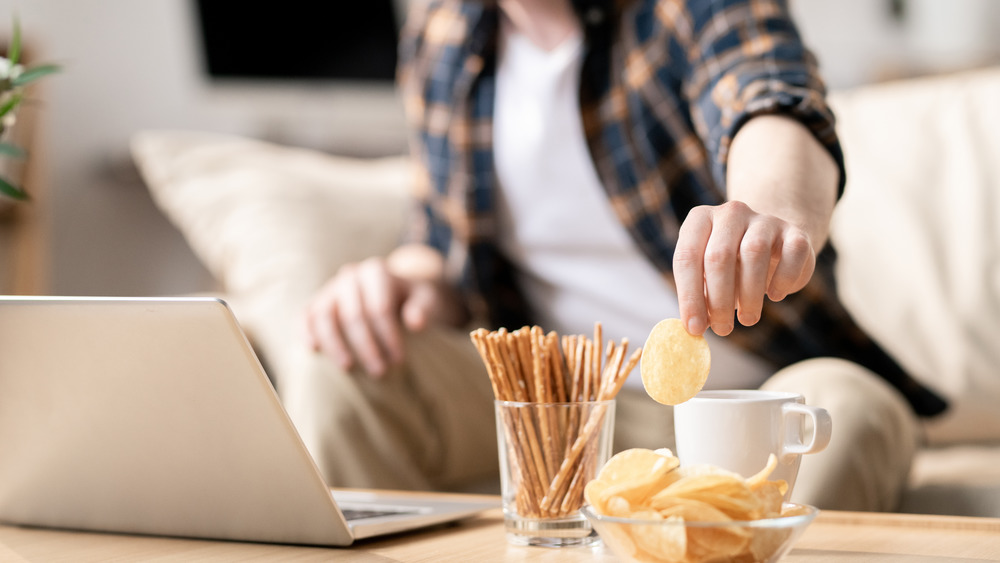The Helpful Advice Japan Can Give Us About Overeating
It has been one year since the World Health Organization officially declared COVID-19 a global pandemic; and in that time, it's safe to say that we've all done our fair share of eating (via AP News). Food has certainly become a focus of life in lockdown, whether you were getting excited about new recipes to try, exploring local takeout options when restaurants nearby closed their doors, or simply eating out of boredom after feeling cooped up for so long. The latter has a tendency to invoke shame in American culture, which is why we connect mindless snacking to words like "cheating," "compulsive eating," and "overeating" (via HuffPost).
Well, Japanese culture is here to teach Westerners something, as it often does, about how to change the framework by which we think about the world. Specifically: snacking when you're bored. Nigella Lawson tweeted last month that she was "intrigued by this concept of 'lonely mouth' eating," and retweeted the link to an article posted on Medium discussing what exactly that means.
Go easy on yourself and your lonely mouth
Kaki Okumura, the author of the Medium article, explained that she had been hearing the term kuchisabishii thrown around a lot these days in Japan. The word refers to boredom eating, but literally translates into "lonely mouth," which really zeros in on the difference in the way the two cultures approach the subject. The term "acknowledges that it's less of a disgraceful problem than it is just being human," Okumura writes. "Like how we are all susceptible to loneliness, we are all susceptible to eating out of boredom."
The solution? Be a little nicer to yourself and to your mouth. When you frame mindless snacking as "overeating," it becomes a mistake; something you shouldn't have done, and something you should therefore feel guilty about. That guilt leads to shame, and shame leads to a whole host of negative emotions, plus a likelihood that you will continue the behavior. But, imagining your mouth as just feeling a bit lonely? That is an emotion you can empathize with, allowing you to forgive yourself (and your mouth), move on, and make healthy decisions for your body down the road.
If you are struggling with an eating disorder, or know someone who is, help is available. Visit the National Eating Disorders Association (NEDA) website or contact NEDA's Live Helpline at 1-800-931-2237. You can also receive 24/7 Crisis Support via text (send NEDA to 741-741).

